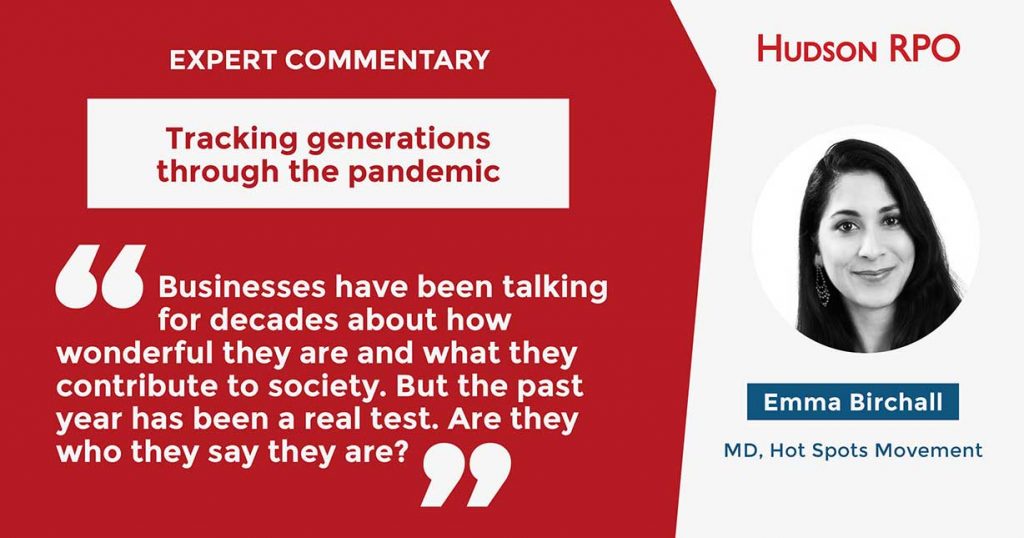- Blogs & Articles
The Future Leader
Organisational leadership has been under scrutiny like never before. From managing the safety of business and people, to dealing with financial pressures and the impact of societal issues, leaders and leadership styles have been tested to breaking point. And the challenges aren’t over. Managing the transition to new ways of working won’t be possible without strong, capable leaders. So, what does leadership of the future look like, and how will our organisations be set up?

Emotional intelligence
Caught in an ever-widening crisis, leadership has been about communication, compassion, and calmness. The leadership teams that have got it right have focused on being open with their people about the unique challenges the business world has faced, have listened to what their employees have needed to survive and have remained level-headed.
In among this, it’s easy to forget those that got things wrong. Pub chain Wetherspoons’ decision to pay employees only 80% of their wages until government furlough schemes were in place was condemned, while Richard Branson’s call for a government bailout of Virgin Atlantic, while employees were on unpaid leave, was a bad look.
Perhaps the biggest change has been the rise of emotional intelligence (EQ) as a key quality in leaders. Defined as the ability to identify and manage your own and others’ emotions, EQ is a crucial differentiator in high-level positions.
The pandemic has created a unique situation where leaders need to be more in tune with their teams than ever before. Faced with myriad uncertainties, employees want to be valued, heard and understood. They need a deeper connection to their leaders and organisations – and the best executives realise this.
Expert commentary
In our recent whitepaper: Work – A Paradigm Shift, Adam Kingl, academic and author of Next Generation Leadership, explains how the next generation believes leadership is about reminding employees of the mission and values of the organisation so that they can prioritise the work they do. Doing so creates a golden thread behind why someone chooses to work for an organisation and the work they do. By helping an individual employee achieve their personal goals, they help the organisation achieve theirs.
Human-centric leadership is about changing your priorities to focus on the human motivations that drive work. It’s about being relevant to the work of the future. To read his full commentary and advice, click here to download the whitepaper for free.
Leadership styles
If the need for stronger connections at work has taught us anything, it is that the era of command-and-control leadership is over. But what leadership styles will emerge from the post-COVID era?
Leadership in crises follow a three-stage structure: responding to the problem, recovering, and thriving in ‘the new normal’. In the respond stage, leaders need to show both empathy and decisiveness while in the recover stage it’s about re-establishing the new ways of working with a collaborative approach.

The impact of Gen Z on the workforce adds to this. They want to express ideas and be heard. Simply telling them what to do is unlikely to retain them and allow them to thrive. All this means that the skills leaders need for the future are evolving. The future leaders will need new skills.
Author Jacob Morgan who interviewed 140 CEO’s around the world for his book, believes that traits as being globally minded, intellectually curious and a part of your team rather than just leading it, will define good leadership in the future.
It also means that organisational structures are evolving. Flatter, less hierarchical structures allow organisations to be more flexible and innovative, as well as more responsive. And while not all businesses will follow, there will be a movement towards less bureaucracy and more agile, project-based working.
Corporate transparency
Organisations are no longer simply businesses where people work – they are now brands that need to express their own values and positions in society. Social issues, such as the Black Lives Matter protests and environmental concerns are increasingly affecting businesses, with leaders needing to give the right messages to articulate their organisation’s values. Diversity and inclusion has always been important to HR and recruitment leaders, but the issue is now permeating the very top of executive teams – even if those leaders aren’t as diverse as they could be. Why? Because customers and candidates demand it.
To read more about this including the case studies of Tate & Lyle sugars and M&G plc, and commentary of Susanne Braun, professor in leadership at Durham business school, click here to download the full whitepaper for free.
Communication
The common thread linking all these issues is communication. Leadership of the future requires excellent communication, whether to influence your people to go with you, reassure them in the face of difficulties or update them on where the business stands.
During the COVID-19 pandemic many leaders found that the best approach was to over-communicate, rather than risk under-communicating. With remote working, this took many forms, from video-conferencing and weekly emails, to – as one client discussed – buying text messaging software to keep factory workers up to date with the business’s response to COVID-19.

But how do you ensure you get your message across? For future leaders, effective communication is about fostering a sense of teamship and community within their employees, while ensuring clarity over roles, projects and outcomes.

Hudson RPO
Content Team
The Hudson RPO Content Team is made up of experts within the Talent Acquisition industry across the Americas, EMEA and APAC regions. They provide educational and critical business insights in the form of research reports, articles, news, videos, podcasts, and more. The team ensures high-quality content that helps all readers make talent decisions with confidence.
Sign up to receive the latest recruitment insights and Hudson RPO news.












